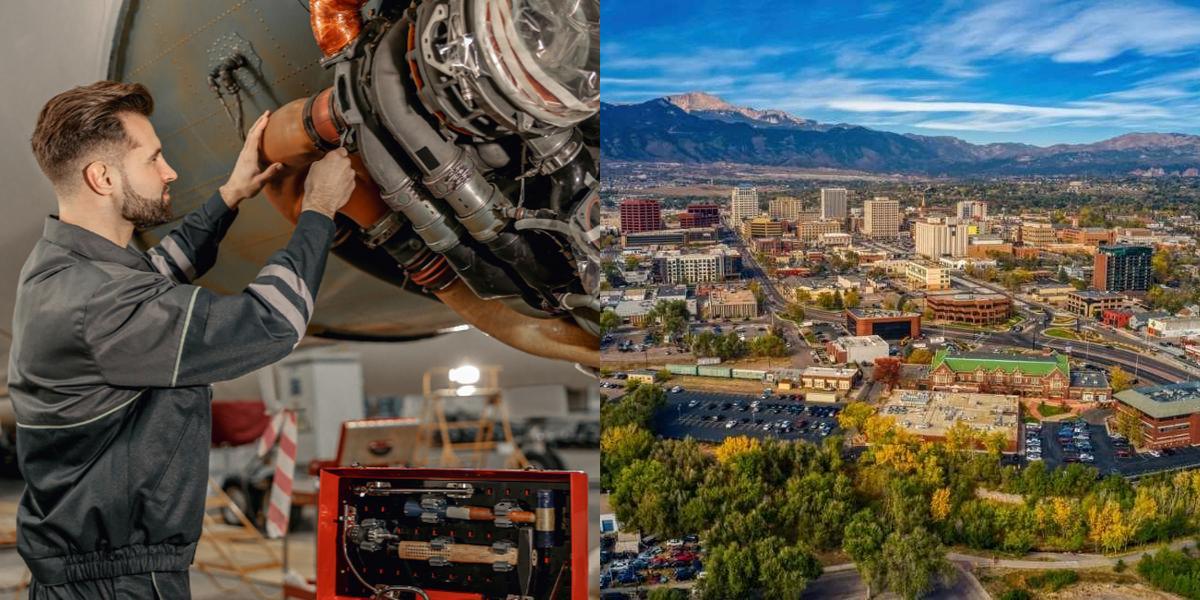How to Become an Aviation Mechanic in Colorado

Aviation mechanics play a crucial role in ensuring the safety and functionality of aircraft. They are responsible for inspecting, repairing, and maintaining various components of airplanes and helicopters. If you have a passion for aviation and a keen eye for detail, becoming an aviation mechanic in Colorado might be the perfect career path for you.
How do I get a job as an Aviation Mechanic?
After obtaining your aviation mechanic certification, you will be ready to start your career in the field. Here are some steps to help you get a job as an aviation mechanic:
-
Build a Strong Resume: Your resume is the first impression potential employers will have of you. Make sure to highlight your education, practical experience, and any relevant certifications or licenses you have obtained. Include any internships, apprenticeships, or volunteer work you have done in the aviation industry.
-
Network: Networking is essential in any industry, including aviation. Attend aviation industry events, join professional organizations, and connect with other aviation professionals. Networking can help you find job opportunities and get recommendations from people already working in the field.
-
Apply for Jobs: Start searching for job openings in the aviation industry. Look for positions at airlines, maintenance and repair facilities, and aerospace companies. Apply to the jobs that align with your skills and interests. Don't be afraid to start with entry-level positions to gain more experience and work your way up.
-
Prepare for Interviews: Once you start receiving interview requests, make sure to prepare thoroughly for each interview. Research the company, understand the job responsibilities, and practice answering common interview questions. Highlight your skills, experience, and passion for aviation during the interview.
-
Continuing Education: The aviation industry is continuously evolving, and it is essential to stay updated with the latest advancements. Consider taking additional courses or certifications to enhance your skills and knowledge. This will make you a more competitive candidate for job opportunities.
-
Consider Apprenticeships: Some companies offer apprenticeship programs that allow you to gain hands-on experience while working under the guidance of experienced aviation mechanics. This can be a valuable opportunity to learn and grow in your career.
Career Paths and Opportunities after Becoming an Aviation Mechanic
Becoming an aviation mechanic opens up a wide range of career paths and opportunities in the aviation industry. Here are a few career paths you can pursue after obtaining your aviation mechanic certification:
-
Airline Maintenance: Many aviation mechanics find employment with commercial airlines. These mechanics are responsible for performing regular maintenance, inspections, and repairs on commercial aircraft. Airline maintenance offers stable employment and the opportunity to work on a variety of aircraft models.
-
General Aviation: General aviation refers to private and recreational flying. Working in general aviation allows you to work on smaller aircraft, such as private planes, helicopters, and small commercial aircraft. Mechanics in general aviation may work for private individuals, flight schools, or small aviation companies.
-
Aerospace Manufacturing: Another career path for aviation mechanics is working in aerospace manufacturing. In this role, you would be responsible for assembling, installing, and testing aircraft components and systems. Aerospace manufacturing companies often have strict quality control standards to ensure the safety and reliability of their products.
-
Government and Military: Aviation mechanics can also find employment with government agencies and the military. These positions may involve maintaining and repairing military aircraft or working on government-owned aircraft used for research, surveillance, or transportation.
-
Aviation Maintenance Management: With experience and additional training, you can pursue a career in aviation maintenance management. Maintenance managers oversee a team of mechanics, ensure compliance with regulations, and manage maintenance schedules and budgets. This role requires strong leadership and organizational skills.
-
Specialized Fields: There are also specialized fields within aviation maintenance that you can explore. These include avionics, where you work on aircraft electrical and electronic systems, and powerplant overhaul, where you focus on aircraft engines. Specializing in a specific area can open up unique career opportunities and allow you to become an expert in your field.
Final Thoughts
Becoming an aviation mechanic can be an exciting and rewarding career choice for those interested in the aviation industry. By following the steps outlined above, you can obtain your aviation mechanic certification and embark on a fulfilling career. Remember to stay updated with the latest industry standards and regulations and continue learning and growing in your field. With dedication and passion for your work, you can have a successful and fulfilling career as an aviation mechanic.
If you're thinking of a new career path, Dreambound offers in-depth guides to understand various job choices:

Athena is Co-founder and CEO of Dreambound.




